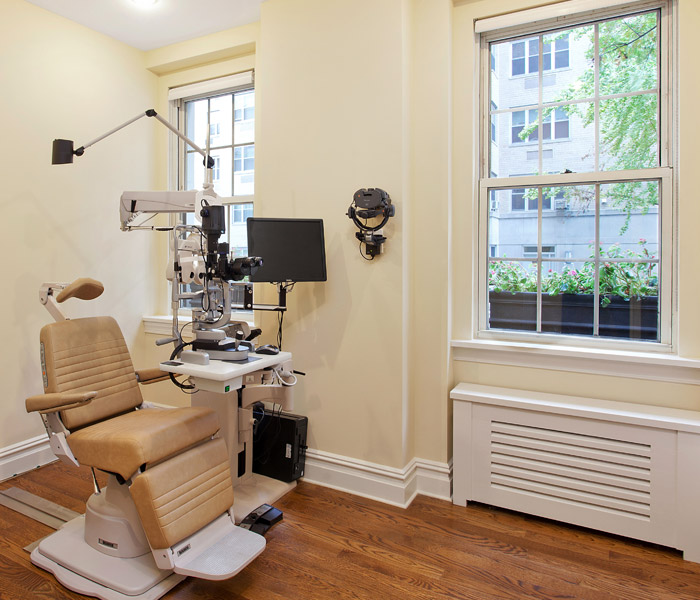A Minor Surgery for Major Vision Improvement
During cataract surgery the eye’s natural lens is replaced with an artificial lens (Intraocular Lens Implant or IOL). The plastic artificial lens used in cataract surgery is permanent, requires no care, and can significantly improve your vision. Newer artificial lens options include those that simulate the natural focusing ability of a young lens, allowing for distance as well as for some near vision.
Usually, cataract surgery is an outpatient procedure that takes less than an hour to complete. In most cases it requires only local anesthesia. If you need to have cataract surgery in both eyes, your procedure will be scheduled as two separate surgeries allowing time for the first eye to heal before the second eye surgery takes place. The doctors at Eye Care on 5th are available to answer any and all questions about your cataract surgery at (917) 639 – 3459. Our top priority is not only your successful outcome, but also your comfort and peace of mind before, during and after cataract surgery.

How Cataract Surgery is Performed
Currently there are two approaches to cataract surgery. Your devoted and expert eye doctors at Eye Care on 5th will work attentively with you to determine which cataract surgery is best for you.
- Phacoemulsification or Small Incision Cataract Surgery
Using local anesthesia for your absolute comfort, phacoemulsification or small incision cataract surgery by the doctors from Eye Care on 5th involves first making an incision in the side of the cornea, which is the clear outer covering of the eye. Then, a tiny probe is inserted into the affected eye and emits ultrasound waves. These ultrasound waves soften and disperse the lens into little pieces, which are removed by suction. During phacoemulsification, your eye doctor removes the cataract but leaves most of the thin outer membrane of the lens (lens capsule) in place. Since the incision made is extremely small, sutures are generally not needed to close the opening. - Extracapsular Cataract Surgery
This approach may be used if your Eye Care on 5th ophthalmologist determines that your cataract has advanced to the point where phacoemulsification will not bring you the best results. Extracapsular surgery requires a somewhat larger incision in the cornea, allowing the lens core to be removed as one piece. Your surgeon then opens the lens capsule through the incision and removes the central portion of the lens, leaving the capsule in place.
Low Risks and Greater Than Expected Benefits of Cataract Surgery
Complications can include:
- bleeding inside the eye
- swelling of the cornea
- inflammation/infection of the eye
- accumulation of fluid in the retina
- detachment of the retina
- increased pressure inside the eye
- drooping eyelid
- dislocation of the implanted lens
Cataract Surgery – Recovery and Aftercare
Post-surgical symptoms are temporary and may include mild itching and/or discomfort, as well as minor fluid discharge and photosensitivity. It is advisable to refrain from rubbing or pressing on your eye. Discomfort usually does not last longer than 48 hours, and complete recovery from cataract surgery is typical after approximately eight weeks. Concerned with your comfort as much as a successful outcome, your doctor may prescribe medications for preventing post-surgical infection and/or for controlling eye pressure.
Because we keep the “I” in eye care, your treatment does not end with the completion of your cataract surgery, but with a full recovery. While you are healing, we will carefully monitor your progress with follow-up visits scheduled at 1 day, 1 -3 weeks, 9-10 weeks and 6 months after cataract surgery.
If you did not receive an accommodating or multifocal intraocular lens implant, you are likely to need a lens prescription for reading and close work. This may be in the form of reading glasses, bifocal or progressive addition lenses or monovision lenses.
Although your vision may be corrected after the cataract surgery, of course your team at Eye Car on 5th we will continue to uphold the highest standard of care with regular, comprehensive eye health and vision exams. If cataract surgery was performed on one eye, your doctor will continue to monitor your eye health and assist you in making arrangements for surgery on the second eye, if needed.
